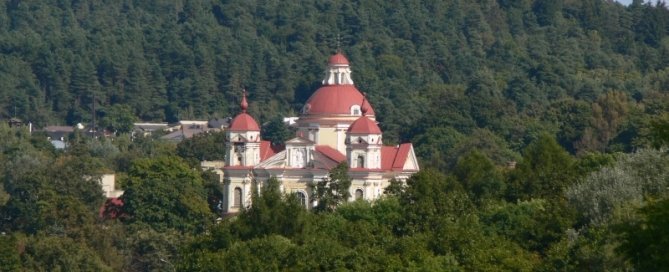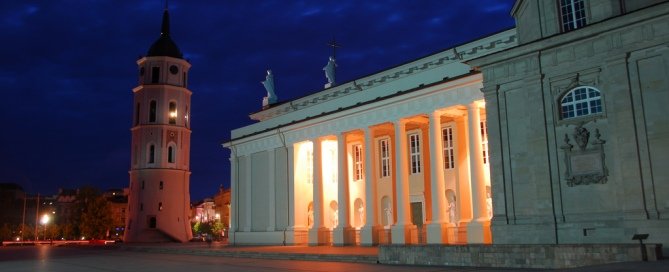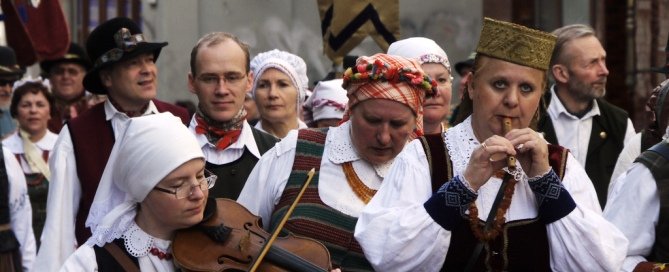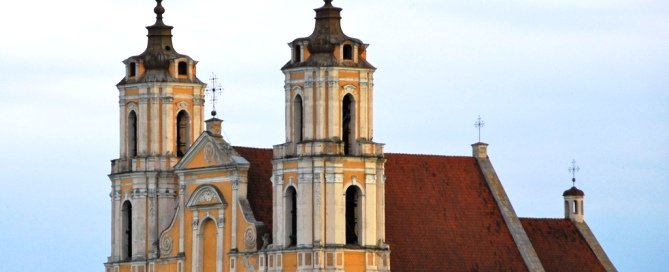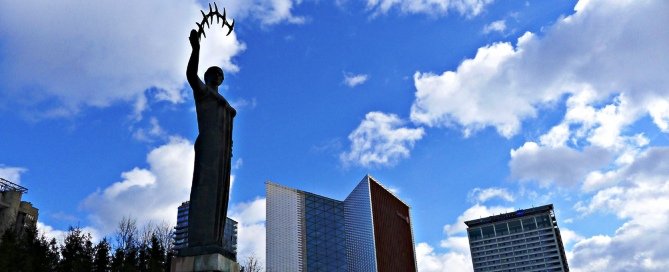Guide to Lithuania
Quick Facts

Population: 3.2 million
Major Language:
Lithuanian
Currency: Lithuania litas
Calling Code: 370
Lithuania is the largest of the three Baltic states. The country's history is typically chequered for the area in northern Europe it sits, and it has alternated between independence and occupation for centuries.
For two centuries it was the largest country in Europe, covering parts of modern day Belarus, Ukraine, Poland and Russia. However, during the 18th century the country was broken up and by the end of the century it came under the Russian empire. In the 20th century, the country flitted between German occupation in WWI, to independence for two decades, to Soviet occupation from 1944.
Lithuania eventually regained its independence in 1990 and quickly aligned itself with Western Europe. The country became a member of both Nato and the EU in 2004 and enjoyed rapid capitalist economic growth. However, after becoming one of the worst victims of the global economic crisis it is still suffering today.
The centuries of independence matched with the country's varied recent history means that Lithuania has a very diverse culture, taking elements from almost every ruler in the last 400 years.
Capital City: With half a million inhabitants, Vilnius is the largest city in Lithuania. It has also been the capital city for almost a millennium. Today, it is a bustling city with diverse architecture telling the story of its diverse past. The Old Town is one of the largest original town centres still around today and was made a UNESCO World Heritage site in 1994.
With 65 churches, Lithuania's largest art museum and the largest library in the Baltic states there is plenty of culture in the city.
Government: Since gaining independence, Lithuania has had a strong focus on democracy. After a referendum, it was decided that the country would have both a President and Prime Minister. Presidents are elected for five-year terms and, despite being a mainly ceremonial position, choose who to elect as Prime Minister.
The current president, Dalia Grybauskaite, was voted in 2009 and is the country's first female president. With a special interest in the economy, she was elected to help deal with the recession hitting Lithuania. She elected Andrius Kubilius as prime minister after his conservative party backed her election campaign.
Culture: To match its patchwork history, Lithuania's culture is hugely diverse, with influences from a variety of other cultures. There is a strong tradition of literature throughout the centuries, in languages ranging from Latin, to Russian, to Lithuanian.
Music is also important to Lithuanian culture, with traditional folk music still influential today. However, away from this, the country also produced renowned 19th century composer, artist and poet Mikalojus Konstantinas Čiurlionis. Choral music is probably the most important form of music in the country today, with some of the world's leading choirs based there. Indeed, Vilnius is the only city with three prestigious choirs laureate awarded by the European choral organisation.
Sport also plays a major role in Lithuanian life, with basketball being particularly popular. The country has won medals at world championships and Olympic games, is currently ranked fifth in the world and has produced a number of NBA players. Football also has a huge number of fans in Lithuania, with a number of the country's star players playing abroad for teams like CSKA Moscow and Lazio. Similarly, Lithuania has a number of world class athletes, with discus thrower Virgilijus Alekna winning two gold medals, Austra Skujytė winning a silver in heptathlon and Edvinas Krungolcas and taking silver in pentathlon, all in recent Olympic Games.
Lithuanian Media
 |
|
Study in Lithuania
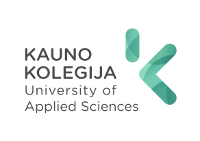 |
Kauno KolegijaOne of the largest higher education institutions in the Baltic region, the university focuses on areas of technologies, social sciences, biomedicine, humanities and arts... |
|


